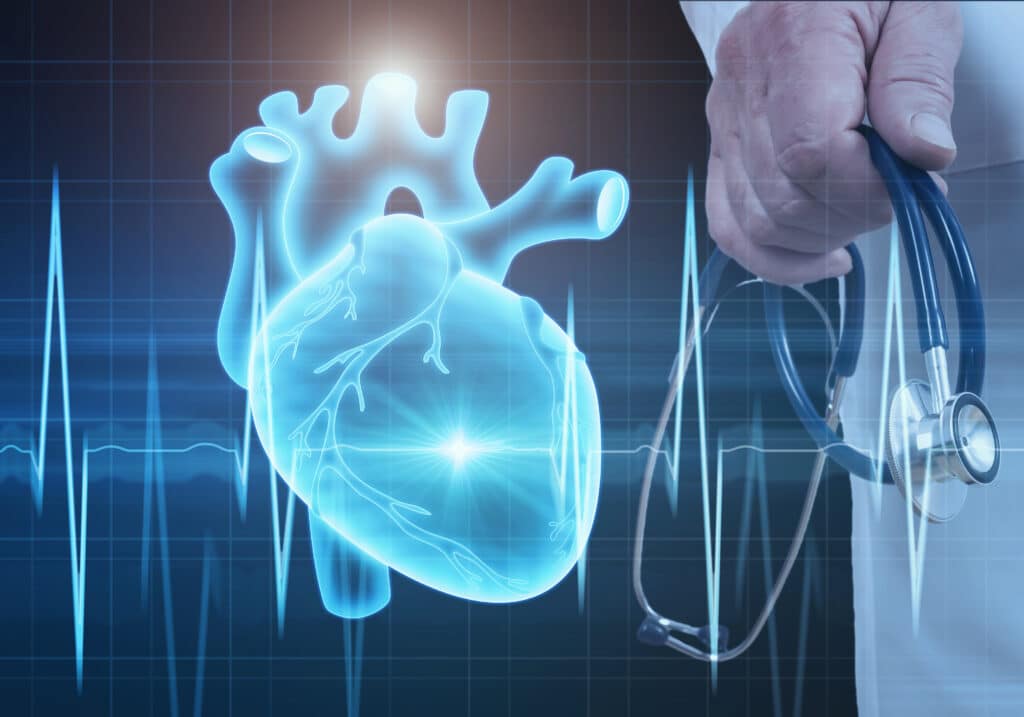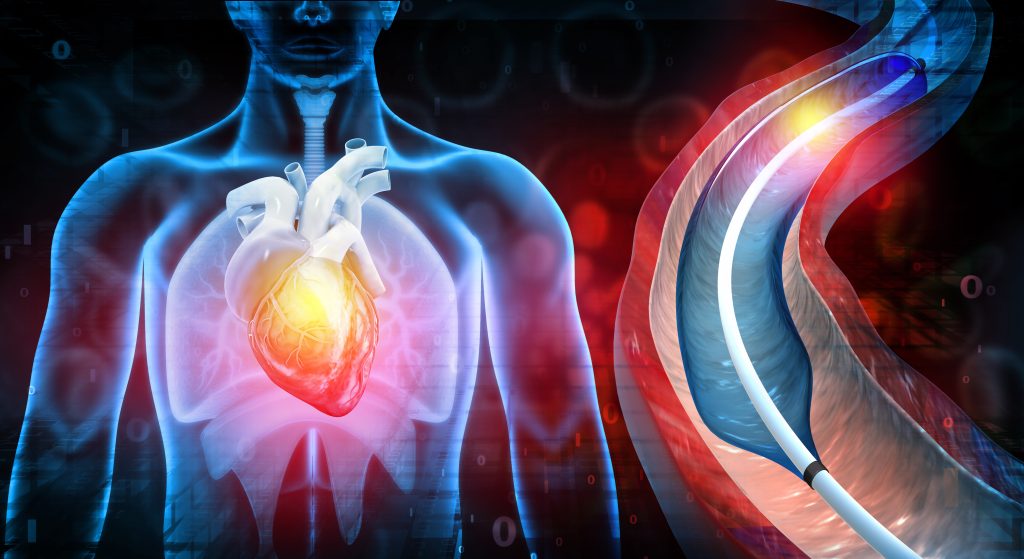Why regular check-ups with Dr Garcia can improve heart outcomes
Why regular check-ups with Dr Garcia can improve heart outcomes
Blog Article
Recognizing the Significance of Cardiology in Modern Health Care Services
Cardiology plays an essential function in modern medical care, particularly as heart problem proceeds to be the leading source of mortality worldwide. Advancements in diagnostics and therapy have actually transformed person care, enabling earlier treatments and improved outcomes. The shift in the direction of preventative cardiology empowers individuals to handle their health and wellness proactively. As modern technology continues to progress, the combination of innovative solutions might even more redefine cardiology's effect on public wellness, motivating a better examination of emerging trends and their implications.
The Frequency of Heart Problem and Its Impact on Public Wellness
Heart disease continues to be the leading cause of fatality worldwide, its effect extends much beyond individual patients to influence public health systems and economic climates. The high frequency of heart problem puts a significant strain on medical care sources, requiring enhanced financing for rehabilitation, avoidance, and therapy programs. Public health efforts need to attend to danger aspects such as obesity, smoking, and less active way of lives, which add significantly to the rising incidence of heart conditions.Moreover, the financial concern associated with cardiovascular disease is enormous, incorporating not just direct clinical expenses yet also indirect expenses connected to lost productivity and early death. Areas face difficulties in managing these costs, commonly resulting in differences in healthcare gain access to and results. As the populace ages and lifestyle-related risks remain to intensify, the urgency for efficient cardiology interventions becomes paramount. As a result, dealing with heart illness is not just a matter of private wellness but likewise a vital public wellness top priority.
Breakthroughs in Cardiac Diagnostics and Imaging Techniques
Current improvements in cardiac diagnostics and imaging methods have actually changed the field of cardiology, improving the capacity to identify and check heart problem. Strategies such as heart MRI, CT angiography, and echocardiography have ended up being progressively sophisticated, supplying detailed photos of cardiac structures and features. These modalities enable for the very early recognition of problems like coronary artery illness, heart failure, and valvular disorders.Moreover, advancements in non-invasive diagnostics, such as wearable modern technology and remote tracking tools, have actually equipped people and medical care carriers. These devices help with real-time tracking of heart rhythms and various other important indicators, resulting in prompt interventions. Furthermore, artificial knowledge is being incorporated right into imaging analysis, enhancing accuracy and performance in medical diagnosis.
Technologies in Therapy Options for Heart Conditions
Current advancements in cardiology have actually resulted in substantial developments in therapy choices for heart problems. These include innovative surgical strategies that enhance step-by-step end results and emerging medications that supply brand-new opportunities for treatment. As the field progresses, these technologies play an essential duty in boosting patient treatment and end results.
Advanced Surgical Techniques
Innovations in medical methods have transformed the landscape of cardiology, offering brand-new expect people with heart conditions. Minimally invasive procedures, such as catheter-based treatments, have actually greatly lowered healing times and healthcare facility keeps. Strategies like robotic-assisted surgery boost accuracy, permitting surgeons to navigate complex anatomical structures with higher accuracy. Advancements in imaging technology help with real-time visualization during procedures, improving outcomes. Transcatheter aortic valve replacement (TAVR) exhibits an innovation in treating aortic constriction, making it possible for shutoff substitute without open-heart surgical treatment. In addition, hybrid techniques that integrate catheter-based and surgical methods offer tailored options for different cardiac issues. These advanced surgical strategies not just improve client safety but additionally increase treatment choices, highlighting the vital role of technology in modern cardiology practices.
Arising Treatments and medicines
As the landscape of cardiology remains to advance, arising medicines and therapies play a pivotal duty in improving therapy choices for heart conditions. Technologies such as unique anticoagulants and advanced lipid-lowering representatives have changed the administration of cardio diseases, greatly minimizing client morbidity and death. Furthermore, the growth of gene therapies and regenerative medication offers encouraging opportunities for dealing with conditions formerly deemed incurable. Professional trials are continually exposing the efficiency of these therapies, pressing the boundaries of standard treatments. The integration of electronic health modern technologies assists in individualized medicine, allowing for tailored treatment strategies based on genetic and way of life elements. Collectively, these developments emphasize the vibrant nature of cardiology, improving client results and redefining standards of treatment in modern health care.
The Function of Preventive Cardiology in Person Treatment
Preventative cardiology plays a vital role in client care by concentrating on the identification of danger aspects that add to heart problem. Through way of life adjustment methods and very early discovery methods, doctor can successfully minimize the occurrence of cardiovascular events - Cardiologist near me. This positive method not only improves individual results but likewise promotes long-term wellness
Danger Aspect Recognition
While heart diseases remain a leading root cause of morbidity and death worldwide, efficient risk element identification functions as a cornerstone of preventive cardiology. Recognizing danger elements such as hypertension, hyperlipidemia, diabetic issues, and family members background is crucial for early intervention. Medical care experts make use of different screening techniques to assess these variables, permitting tailored preventative measures. Furthermore, recognizing an individual's way of living selections, such as cigarette smoking and physical inactivity, further educates risk assessments. This thorough evaluation enables clinicians to develop individualized care strategies aimed at mitigating threats. By prioritizing threat factor recognition, healthcare systems can improve person outcomes and minimize the general concern of heart diseases, inevitably contributing to enhanced public wellness techniques and source allowance.
Way Of Life Alteration Techniques
A wide variety of studies highlights the vital duty of way of living adjustment strategies in decreasing cardiovascular illness threat. These strategies encompass dietary modifications, raised exercise, cigarette smoking cessation, and weight administration. By taking on a heart-healthy diet regimen abundant in fruits, veggies, entire grains, and lean proteins, individuals can lower cholesterol levels and blood pressure. Routine exercise enhances the heart and enhances general cardio wellness. In addition, quitting cigarette smoking considerably lowers the threat of cardiovascular disease and enhances healing rates for those with current conditions. Weight administration even more adds to cardiovascular health by mitigating other danger factors such as diabetes and hypertension. Executing these lifestyle changes not only advertises specific health however likewise functions as a keystone of preventative cardiology in individual care.
Very Early Detection Strategies
Way of living adjustments significantly add to lowering cardio condition dangers, however they are most efficient when coupled with early discovery methods. Preventive cardiology highlights the relevance of identifying possible heart problems before they rise into significant conditions. Strategies such as blood stress tracking, cholesterol testing, and advanced imaging technologies like echocardiograms play critical functions in evaluating cardio health and wellness. Biomarkers and genetic screening also boost the precision of very early detection, permitting tailored preventive methods. Routine heart risk examinations empower health care service providers to interfere proactively, potentially avoiding cardiovascular disease and strokes (Cardiologist near me). By integrating these very early discovery techniques right into regular treatment, clients can profit from prompt lifestyle treatments and targeted therapies, ultimately improving and boosting end results lifestyle
Integrating Innovation Into Cardiology Practices
As advancements in technology remain to improve different fields, the assimilation of ingenious devices and systems right into cardiology practices has ended up being essential for improving individual treatment and end results. Telemedicine platforms permit cardiologists to keep track of individuals from another location, enhancing accessibility to care while lowering the burden on healthcare facilities. Wearable devices, such as smartwatches, enable continuous heart price tracking, signaling both physicians and patients to potential issues in real-time. Additionally, artificial intelligence (AI) is being made use of to analyze vast amounts of heart information, aiding in very early diagnosis and customized treatment plans. Advanced imaging methods, including 3D echocardiography, enhance visualization of heart structures, leading to extra specific treatments. Digital health records (EHRs) streamline patient details monitoring, making sure that cardiologists have instant access to important data. Together, these technical improvements are transforming cardiology, promoting aggressive administration and improved wellness outcomes for patients with cardio conditions.
The Value of Client Education And Learning and Engagement
Patient education and learning and engagement play an essential role in the administration of cardio health and wellness. By outfitting clients with expertise regarding their problems, treatment choices, and lifestyle modifications, doctor encourage individuals to take an active duty in their care. This positive strategy can lead to enhanced adherence to suggested medications, dietary modifications, and workout routines, ultimately minimizing the threat of complications.Engagement additionally fosters a strong patient-provider connection, urging open interaction and trust. When individuals really feel educated and involved, they are much more likely to voice worries and ask inquiries, which can bring about better professional results. Additionally, educational resources, such as workshops or digital platforms, can improve understanding and promote self-management methods. Generally, prioritizing patient education and learning and engagement is vital for boosting cardio wellness, boosting high quality of life, and minimizing healthcare costs connected with heart diseases.
Future Fads in Cardiology and Their Prospective Influence

Often Asked Questions
What Lifestyle Adjustments Can Minimize Heart Disease Threat?
The existing concern addresses lifestyle changes that can substantially minimize heart illness risk. Cardiology Jupiter. Adopting a well balanced diet, engaging in normal exercise, maintaining a healthy and balanced weight, handling stress, and staying clear of tobacco can notably boost cardiovascular health
Just How Can I Acknowledge Very Early Indications of Heart Problems?
Acknowledging early indicators of heart problems entails monitoring symptoms such as upper body pain, lack of breath, fatigue, and uneven heartbeat. Prompt awareness of these signs can motivate needed clinical examination and intervention for far better results.
What Are the Distinctions Between Cardiologists and Cardiac Surgeons?
The distinctions between cardiologists and heart surgeons lie in their duties; cardiologists primarily handle and detect heart disease via non-invasive methods, while heart doctors carry out operations to fix architectural heart concerns. Each plays an important, unique duty.

How Frequently Should I Get My Heart Wellness Checked?
The regularity of heart health and wellness checks more info here varies based on specific risk aspects. Normally, adults should undertake examinations every one to 2 years, while those with current conditions might need more constant evaluations as advised by medical care experts.
What Role Does Genes Play in Heart Problem Risk?
Genes significantly affects heart problem threat, with familial patterns important source indicating inherited problems. Specific genetics can incline individuals to high blood pressure, cholesterol problems, and various other cardiovascular troubles, highlighting the significance of hereditary screening in evaluating heart wellness. Heart disease stays the leading cause of death globally, its effect expands far past individual clients to impact public wellness systems and economic climates. Public wellness initiatives need to address danger variables such as weight problems, smoking cigarettes, and sedentary way of lives, which add greatly to the rising occurrence of heart conditions.Moreover, the economic problem associated with heart illness is enormous, incorporating not only direct medical prices yet also indirect expenses related to shed performance and early mortality. Preventive cardiology plays a necessary duty in patient care by focusing on the recognition of danger aspects that add to heart condition. Artificial intelligence (AI) and device discovering are improving diagnostics and person surveillance, making it possible for early detection of heart diseases. The differences in between cardiologists and heart doctors exist in their roles; cardiologists primarily manage and diagnose heart conditions through non-invasive methods, while heart specialists do medical procedures to fix structural heart issues.
Report this page